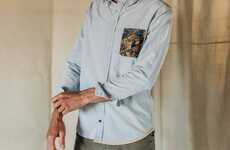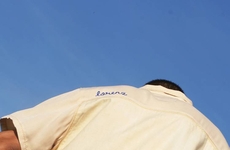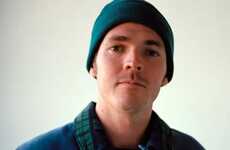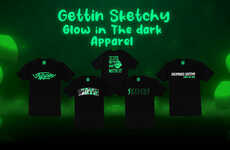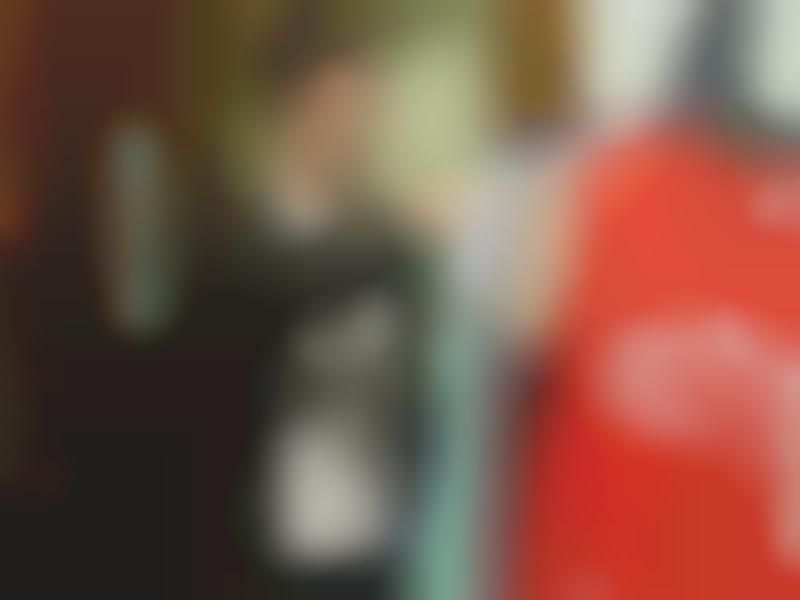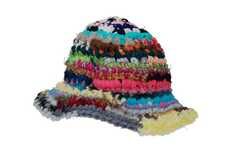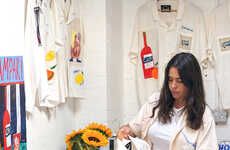Artisan-Empowering Enterprise
Tiana Reid — February 15, 2012 — Social Good
References: projectrepat.org & facebook
Nathan Rothstein works in marketing and sales at Project Repat, which is a social enterprise that creates new products, namely bags and scarfs, out of the t-shirts that are dumped on Africa from North America. As Rothstein explains, "The majority of t-shirts don’t end up in Africa as charity, but in massive secondhand markets as part of booming local economy that provides jobs for millions of Africans who are selling, cleaning, and tailoring our castaway clothing."
Here, Nathan Rothstein gives SocialBusiness.org readers a closer look into the (funny) beginnings of Project Repat, and also a serious take on how the initiative negotiates American consumerism.
Four Questions with Nathan Rothstein
1. How did the idea for the business model come about?
The story of Project Repat begins with two twenty-somethings, both executive directors of Boston non-profit organizations looking for a new ways to fund their work in Africa. During a trip to Kenya, one of them gets stuck in a horrific traffic jam, only to discover the cause of the accident: an overturned fruit and vegetable rickshaw owned by a man wearing a t-shirt that said “I Danced My Ass Off at Josh’s Bar Mitzvah.”
In January 2011, Sean Hewens and Ross Lohr launched Project Repat, a social enterprise to support secondhand t-shirt businesses and artisans in Kenya. The friends traveled to Nairobi’s Gikomba market, the largest secondhand market in East Africa, where they picked out t-shirts to re-brand with a Project Repat stamp and sell in the US and filmed a documentary entitled “I Didn’t Dance My Ass Off At Josh’s Bar Mitzvah.”
The majority of t-shirts don’t end up in Africa as charity, but in massive secondhand markets as part of booming local economy that provides jobs for millions of Africans who are selling, cleaning, and tailoring our castaway clothing. Sean and Ross were delighted to discover artisans creating completely new designs out of our old t-shirts. These modified shirts became part of the Project Repat “Refab” line, and the inspiration for a new model: partnering with artisans in Kenya to make completely new products out of castaway American t-shirts.
In January, 2012, Ross traveled back to Nairobi with hundreds of orders for new t-shirt products: tote bags, circle scarves and skirts, setting up a system employing Kenyans to handle the coordination of Project Repat product creation and empowering individuals to earn a fair, livable wage to support themselves and their families.
In Kenya, Rachel manages order logistics, and Leboo, a Kenyan with an incredible eye for amazing t-shirts, picks out shirts and matches colors for products. Project Repat’s “factory” is literally a treehouse sitting high above the shoe stalls of Gikomba Market. An artist collaborative and NGO, The Treehouse is a hub for creative art, music, and performance arts, providing street children with a safe environment and valuable life skills. Mdogo, the founder of The Treehouse, coordinates production within Gikomba, with help from local tailors and other inhabitants of the space.
Project Repat believes in No More New. We can not solve the problem of American addiction to retail, but we can help improve lives around the world by shining a light on the t-shirt story. The easy way out is to dump millions of free shirts and then leave, but this undercuts local entrepreneurs. There are many creative African entrepreneurs and artisans who are making their own altercations to our old t-shirts. Let's support the developing world by giving entrepreneurs more opportunities to be self-sufficient. Every time you buy a product, you have created another opportunity for someone to put money in their pocket and feed their families. In an ideal world, everyone should have this opportunity. There is a story to tell about your t-shirt, but more importantly, we want to put people back to work.
2. How did you decide to join this sector?
Ross and I (Nathan) met during our MBA program at the Heller School at Brandeis. We were both studying social entrepreneurship. In 2006, joined Americorps in New Orleans and worked for a small neighborhood association/relief organization, and stayed in the city for for years working on a variety of recovery-related projects. Last year, I helped start a social enterprise that attempted to help market small businesses and do education fundraising. We were not able to scale, and ultimately had to shut it down, but I learned a lot from our mistakes. We often talk about our accomplishments, but the mistakes and errors is how we really learn. At Repat, Ross and I are constantly experimenting, seeing what sticks, and then finding innovative ways to implement it.
3. How do you get your inspiration?
Both of us know that there are people much smarter than us who have built great businesses with a social impact. I am constantly reading and picking up different ideas that we can implement from different sectors. Fast Company recently wrote an amazing article about Generation Flux, and it speaks well to how many social innovators approach their business. You have to constantly be asking yourself, how can we make a bigger impact and reach more people? Every day -- the world changes -- a new technology is discovered -- and it's crucial to stay agile and be able to quickly adapt. We also understand the urgency of creating a business that can provide people from around the world the opportunity to make a fair and living wage. If we can not create a product that sells, that is one less job we can help create.
4. How do you reset yourself to be creative? Do you have any rituals?
We both need to be talking and interacting with people a lot. If we spend too much time in the office, we get restless, and we feed off the energy of other people. Besides always asking questions, we are avid fans of Boston sports teams. We also have a great fashion designer on our team, Jacquelyn Yau, who is always developing new prototypes, and it's always interesting to see what she comes up with. If there is one ritual we have, it is never to have a day that is exactly alike.
Here, Nathan Rothstein gives SocialBusiness.org readers a closer look into the (funny) beginnings of Project Repat, and also a serious take on how the initiative negotiates American consumerism.
Four Questions with Nathan Rothstein
1. How did the idea for the business model come about?
The story of Project Repat begins with two twenty-somethings, both executive directors of Boston non-profit organizations looking for a new ways to fund their work in Africa. During a trip to Kenya, one of them gets stuck in a horrific traffic jam, only to discover the cause of the accident: an overturned fruit and vegetable rickshaw owned by a man wearing a t-shirt that said “I Danced My Ass Off at Josh’s Bar Mitzvah.”
In January 2011, Sean Hewens and Ross Lohr launched Project Repat, a social enterprise to support secondhand t-shirt businesses and artisans in Kenya. The friends traveled to Nairobi’s Gikomba market, the largest secondhand market in East Africa, where they picked out t-shirts to re-brand with a Project Repat stamp and sell in the US and filmed a documentary entitled “I Didn’t Dance My Ass Off At Josh’s Bar Mitzvah.”
The majority of t-shirts don’t end up in Africa as charity, but in massive secondhand markets as part of booming local economy that provides jobs for millions of Africans who are selling, cleaning, and tailoring our castaway clothing. Sean and Ross were delighted to discover artisans creating completely new designs out of our old t-shirts. These modified shirts became part of the Project Repat “Refab” line, and the inspiration for a new model: partnering with artisans in Kenya to make completely new products out of castaway American t-shirts.
In January, 2012, Ross traveled back to Nairobi with hundreds of orders for new t-shirt products: tote bags, circle scarves and skirts, setting up a system employing Kenyans to handle the coordination of Project Repat product creation and empowering individuals to earn a fair, livable wage to support themselves and their families.
In Kenya, Rachel manages order logistics, and Leboo, a Kenyan with an incredible eye for amazing t-shirts, picks out shirts and matches colors for products. Project Repat’s “factory” is literally a treehouse sitting high above the shoe stalls of Gikomba Market. An artist collaborative and NGO, The Treehouse is a hub for creative art, music, and performance arts, providing street children with a safe environment and valuable life skills. Mdogo, the founder of The Treehouse, coordinates production within Gikomba, with help from local tailors and other inhabitants of the space.
Project Repat believes in No More New. We can not solve the problem of American addiction to retail, but we can help improve lives around the world by shining a light on the t-shirt story. The easy way out is to dump millions of free shirts and then leave, but this undercuts local entrepreneurs. There are many creative African entrepreneurs and artisans who are making their own altercations to our old t-shirts. Let's support the developing world by giving entrepreneurs more opportunities to be self-sufficient. Every time you buy a product, you have created another opportunity for someone to put money in their pocket and feed their families. In an ideal world, everyone should have this opportunity. There is a story to tell about your t-shirt, but more importantly, we want to put people back to work.
2. How did you decide to join this sector?
Ross and I (Nathan) met during our MBA program at the Heller School at Brandeis. We were both studying social entrepreneurship. In 2006, joined Americorps in New Orleans and worked for a small neighborhood association/relief organization, and stayed in the city for for years working on a variety of recovery-related projects. Last year, I helped start a social enterprise that attempted to help market small businesses and do education fundraising. We were not able to scale, and ultimately had to shut it down, but I learned a lot from our mistakes. We often talk about our accomplishments, but the mistakes and errors is how we really learn. At Repat, Ross and I are constantly experimenting, seeing what sticks, and then finding innovative ways to implement it.
3. How do you get your inspiration?
Both of us know that there are people much smarter than us who have built great businesses with a social impact. I am constantly reading and picking up different ideas that we can implement from different sectors. Fast Company recently wrote an amazing article about Generation Flux, and it speaks well to how many social innovators approach their business. You have to constantly be asking yourself, how can we make a bigger impact and reach more people? Every day -- the world changes -- a new technology is discovered -- and it's crucial to stay agile and be able to quickly adapt. We also understand the urgency of creating a business that can provide people from around the world the opportunity to make a fair and living wage. If we can not create a product that sells, that is one less job we can help create.
4. How do you reset yourself to be creative? Do you have any rituals?
We both need to be talking and interacting with people a lot. If we spend too much time in the office, we get restless, and we feed off the energy of other people. Besides always asking questions, we are avid fans of Boston sports teams. We also have a great fashion designer on our team, Jacquelyn Yau, who is always developing new prototypes, and it's always interesting to see what she comes up with. If there is one ritual we have, it is never to have a day that is exactly alike.
Trend Themes
1. Upcycling Fashion - Project Repat creates new products from old t-shirts and empowers secondhand t-shirt businesses and artisans in Africa, setting a trend toward upcycling and supporting sustainable fashion.
2. Fair Trade Globalization - Project Repat's model of collaborating with African artisans and entrepreneurs demonstrates a trend of fair trade globalization that enables people from different parts of the world to support themselves and their families.
3. Creative Social Entrepreneurship - Project Repat's success story shows that creative social entrepreneurship is possible, as shown by Ross and Nathan's relentless experimentation and innovation.
Industry Implications
1. Sustainable Fashion - Project Repat's upcycling model contributes to the sustainable fashion industry, a growing market that values environmentally friendly practices and ethical sourcing.
2. Fair Trade - Project Repat's collaboration with African artisans highlights a trend toward fair trade, an industry that ensures the protection and welfare of workers in developing countries.
3. Social Entrepreneurship - Project Repat's innovative approach to social entrepreneurship inspires creative solutions to social and environmental challenges, emphasizing the importance of using business as a force for good.
3.2
Score
Popularity
Activity
Freshness
